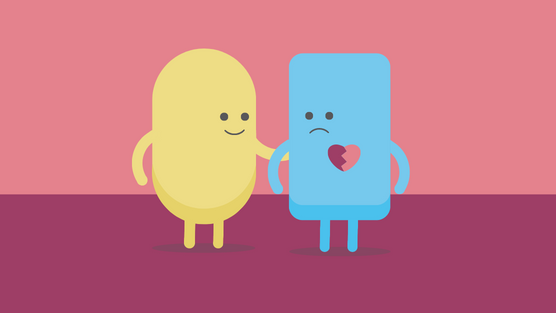When a relationship ends, it can be a deeply emotional and difficult experience for both parties involved. It is natural to feel a range of emotions, including sadness, anger, and grief. However, conscious uncoupling offers an alternative approach to dealing with the end of a relationship that focuses on self-care, personal growth, and healing.
Gwyneth Paltrow popularised the term when she and her then-husband, Chris Martin, announced their separation in 2014. Conscious uncoupling, coined by relationship coach and author Katherine Woodward Thomas, refers to the process of ending a romantic relationship in a way that is respectful, compassionate, and mindful of both parties.
“Your breakup doesn’t need to ruin your life, damage your kids or define your future,” says Woodward Thomas. The aim of conscious uncoupling is to “bring you through one of the most difficult things you ever have to go through intact and with everyone set up to win”.
What is conscious uncoupling?
While every breakup is unique, and there is no one-size-fits-all solution, conscious uncoupling offers a framework for navigating the end of a relationship with grace and kindness.
One of the key elements is the idea is that both of you played a role in the demise of your relationship demise, and taking responsibility for your actions is important. This means acknowledging any hurt you may have caused and apologising for it. It also involves forgiveness, both for yourself and your ex-partner.
Another important aspect of conscious uncoupling is personal growth. Instead of getting stuck in negative emotions, it’s about moving forward and becoming the best version of yourself. This might mean going to therapy, joining a support group, or finding other ways to process the end of the relationship.

Find the right support professionals to guide you through your separation
Take our 3-minute Q&A to connect with our professional network of divorce coaches, mediators and ethically-aligned family lawyers who can support you through the kind of separation you want.
START THE Q&AIs conscious uncoupling an easier way to end a relationship?
Often the easiest emotions to feel when you are hurting are anger and resentment. It can be easier to blame someone else for your situation than take responsibility for your role in the situation. The conscious uncoupling process can be challenging and requires a willingness to be vulnerable and honest about your own emotions and actions.
However, the benefits of the approach can be significant. It allows you to end your relationship with love and understanding rather than bitterness and resentment and move forward with a sense of peace.
Who can help us consciously uncouple?
If you’re considering this approach, it can help you both to seek the support of a divorce coach or couples counsellor who can help you communicate in a way that will avoid escalation and lay the groundwork for a positive separation. They can also support you with some of the more confronting aspects of acknowledging your own role in the breakdown of the relationship. It is also important to choose legal professionals aligned with your wishes and actively seek to avoid escalation.
Key takeaways
-
- Conscious uncoupling involves being vulnerable and honest about one’s emotions and actions, leading to a more peaceful end to the relationship with love and understanding rather than bitterness.
- Seek support from a divorce coach or couples counsellor to communicate effectively and avoid escalation. Legal professionals can also help ensure the process aligns with your wishes.
- Conscious uncoupling focuses on self-care, personal growth, and healing. It involves acknowledging each party’s role in the relationship’s end, taking responsibility, and seeking forgiveness. The goal is to navigate the breakup with grace and move forward positively.
Journalist Tamara Oudyn from ABC Radio Life Matters podcast series ‘The Good Divorce’ spoke with Katherine Woodward Thomas about conscious uncoupling. Listen to the episode here.
The Separation Guide aims to make separation and divorce simpler, more manageable and less stressful. To find out more about how one of our Network Members could support your separation, take our free 3-minute Q&A.
Disclaimer
The information in our resources is general only. Consider getting in touch with a professional adviser if you need support with your legal, financial or wellbeing needs.















